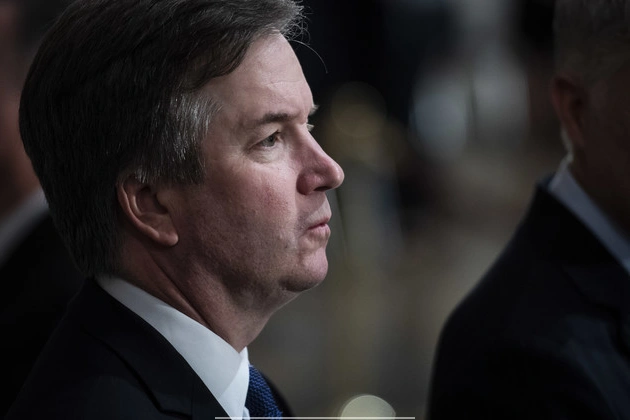
In a surprising turn of events, Nicholas Roske, a 29-year-old California man, pleaded guilty to attempting to assassinate Supreme Court Justice Brett Kavanaugh at his Maryland home in June 2022. The case, unfolding in federal court in Greenbelt, sheds light on the chilling details surrounding the crime.
The Attempted Assassination and Motives
Roske’s plea came during a half-hour hearing before U.S. District Court Judge Deborah Boardman, where he calmly admitted to the charge. The prosecution characterizes the act as terrorism, with sentencing guidelines suggesting a term ranging from 30 years to life imprisonment.
While the motive behind Roske’s actions remained undisclosed during the hearing, prosecutors allege that his intent was to influence the Supreme Court’s stance on crucial issues like abortion and gun rights.
Leading up to his arrest, Roske’s encrypted messages hinted at plans to target multiple Supreme Court justices, emphasizing the impact on future decisions. His actions coincide with significant court developments, including a pivotal ruling on abortion rights shortly after his apprehension.
Legal Proceedings and Defense Strategy
Roske’s demeanor in court, clad in a yellow jail uniform, indicated a composed stance as he acknowledged the gravity of his plea. He disclosed ongoing mental health treatment, a factor likely to feature in his defense for leniency.
Despite entering a guilty plea without a sentencing agreement, Roske’s defense team anticipates factual disputes during the sentencing phase. Witness testimonies are expected to support their arguments, potentially challenging certain assertions made by the prosecution.
Implications and Victim’s Rights
Throughout the hearing, Justice Kavanaugh was referred to as ‘the victim’ or ‘an associate justice,’ reflecting the legal proceedings’ sensitivity. Prosecutors have notified Kavanaugh of his rights under the Crime Victims Rights Act, with considerations for seeking restitution for incurred costs as a result of the attempted assassination.
This unprecedented case not only underscores the severity of the crime but also raises questions about security protocols and the mental health support system. As the legal process unfolds, the public awaits further insights into Roske’s motivations and the broader impact of his actions on the judicial system.











